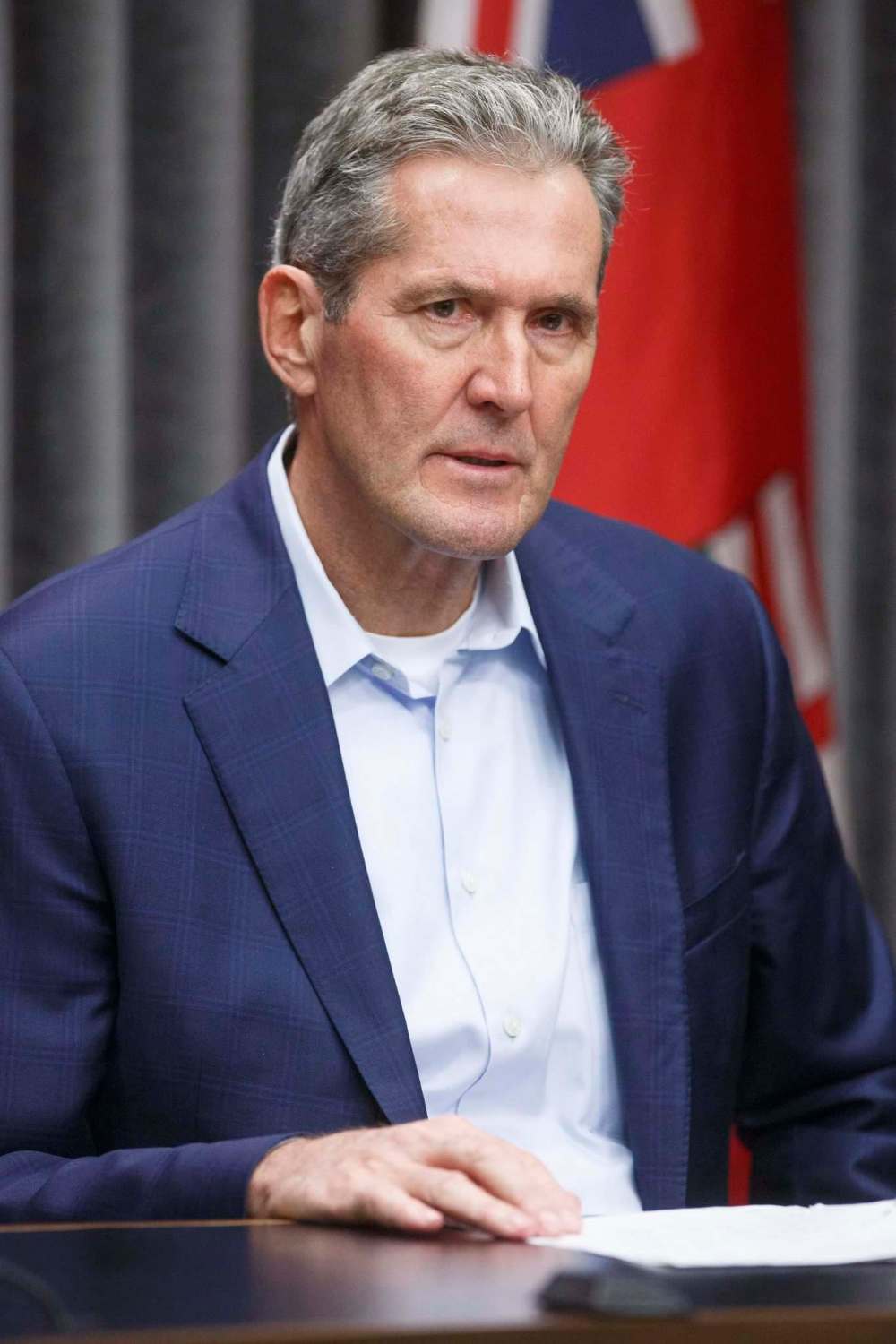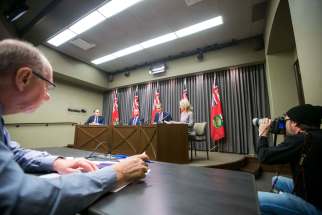Blackout law requires arm’s-length review
Read this article for free:
or
Already have an account? Log in here »
To continue reading, please subscribe:
Monthly Digital Subscription
$0 for the first 4 weeks*
- Enjoy unlimited reading on winnipegfreepress.com
- Read the E-Edition, our digital replica newspaper
- Access News Break, our award-winning app
- Play interactive puzzles
*No charge for 4 weeks then price increases to the regular rate of $19.00 plus GST every four weeks. Offer available to new and qualified returning subscribers only. Cancel any time.
Monthly Digital Subscription
$4.75/week*
- Enjoy unlimited reading on winnipegfreepress.com
- Read the E-Edition, our digital replica newspaper
- Access News Break, our award-winning app
- Play interactive puzzles
*Billed as $19 plus GST every four weeks. Cancel any time.
To continue reading, please subscribe:
Add Free Press access to your Brandon Sun subscription for only an additional
$1 for the first 4 weeks*
*Your next subscription payment will increase by $1.00 and you will be charged $16.99 plus GST for four weeks. After four weeks, your payment will increase to $23.99 plus GST every four weeks.
Read unlimited articles for free today:
or
Already have an account? Log in here »
Hey there, time traveller!
This article was published 02/04/2020 (2080 days ago), so information in it may no longer be current.
Manitoba’s Progressive Conservative government has introduced new legislation to change the rules restricting what government can say in the lead-up to a provincial election, the so-called pre-writ “blackout.” Although the amendments introduced last month address some legal shortcomings, they do not address the real problem: the tendency of governing parties to abuse whatever law is in place.
The current restrictions on election-period announcements and advertising were drafted in the early 2000s by the then-governing NDP. The law prohibits government from making official announcements in the 90 days leading up to an election, so opposition parties will not be put at a disadvantage by a flood of taxpayer-paid communication, much of it with a decided partisan flavour.
That seems reasonable, until you look at how governments have used the law. Rather than operating on the legislatively levelled playing field, both NDP and PC governments have flouted the rules and engaged in clearly inappropriate marketing and political activities, most likely because a violation of these provisions warrants nothing more than a public rebuke.
But that has not been the only abuse. Both the NDP and Tory governments have also used the law to run from unflattering stories. In other words, when something potentially controversial came up, government officials would hide behind the law and refuse to provide comment or information. This became particularly problematic in the prelude to the 2019 provincial election, when Premier Brian Pallister’s government cited the blackout provisions while refusing to respond to stories about nursing shortages, lead levels in residential neighbourhoods and wait times for emergency medical treatment.
The Free Press is among numerous outlets that called for changes to the law to clarify what government can and cannot say in a pre-writ period and to increase the penalties for contravention.
The Free Press is among numerous outlets that called for changes to the law to clarify what government can and cannot say in a pre-writ period and to increase the penalties for contravention. On the first point, the Pallister government is proposing new broader rules that would allow ministers to make certain statements during the blackout period, as long as no government resources are used to produce or support them.
Opposition New Democrats warn that this will afford Tory ministers too much wiggle room to use their profile as representatives of the Crown to publicize government initiatives during the blackout — which is the issue that led to the existing law.

In the end, it might be impossible to devise a law that effectively curbs a government’s impulse to use taxpayer resources to publicize partisan interests, because governing parties will continue to look for any and all loopholes they can exploit.
Neither the Tories nor the NDP has any credibility on this issue. Each has complained about the other using taxpayer money to publicize partisan activities, and both have used taxpayer money to publicize partisan activities. It might simply be that neither is capable of the objectivity required to devise a new legal regime to curb an activity for which they have demonstrated an abiding affection.
The issue of restrictions on government communication prior to an election should be studied and solved by an arm’s-length third party, perhaps the Manitoba Law Reform Commission or Elections Manitoba. And whomever considers it should look at real penalties for contravening the law — significant fines or even, perhaps, the vacating of a seat and a mandatory byelection.
Whatever the rules and penalties turn out to be, this issue should not be left solely to elected politicians, who have demonstrated time and again that they will seek a way around any restriction that is put in place.










